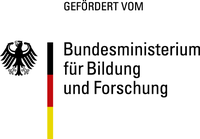| Contents: | Call for workshop participation
The Czech-Bavarian Competence Team for Supercomputing Applications invites all interested researchers to a workshop on exploiting high performance computing (HPC) for natural hazard assessment and disaster mitigation. Contributed presentations are welcome on all related topics, such as simulation of geological or meteorological hazards, floods, wildfire, diseases or any other hazard to society.
Of special interest to our workshop will be presentations addressing demands and desired features of (future) simulation software, efficient usage of current and novel HPC platforms, as well as establishing scalable simulation workflows including large data sets in HPC environments.
To register for participation in the workshop, see link to the registration form below - there is no registration fee for participation.
If you wish to give a presentation, please submit a title and short abstract (10-20 lines) via email to Michael Bader <bader@in.tum.de>.
The workshop is collocated with the PRACE PATC Course "Intel MIC Programming Workshop" (June 26-28, separate registration necessary) at LRZ, see: https://events.prace-ri.eu/event/609/. In particular, the two events will share a series of invited talks on June 28, 2017 (Wednesday afternoon).
Michael Bader, Technische Universität München
Dieter Kranzlmüller, Leibniz Supercomputing Centre
Vit Vondrak, IT4Innovations National Supercomputing Centre
Preliminary scheduleA detailled agenda as pdf can be found here.
Wednesday, June 28, 2017, 13:00-18:00, Hörsaal, H.E.009 (Lecture Hall) Plenum session with invited talks on MIC experience and best practice recommendations
(joint session with the PRACE PATC Course "Intel MIC Programming Workshop"), public session - 13:00-13:30 Luigi Iapichino, IPCC@LRZ: "Performance Optimization of Smoothed Particle Hydrodynamics and Experiences on Many-Core Architectures"
- 13:30-14:00 Michael Bader/Carsten Uphoff, IPCC@TUM: "Extreme-scale Multi-physics Simulation of the 2004 Sumatra Earthquake"
- 14:00-14:30 Vit Vondrak/Branislav Jansik, IPCC@IT4I: "Development of Intel Xeon Phi Accelerated Algorithms and Applications at IT4I"
- 14:30-15:00 Michael Klemm, Intel: "Application Show Cases on Intel® Xeon Phi™ Processors"
- 15:00-15:30 Coffee Break
- 15:30-16:00 Jan Eitzinger, RRZE: "Evaluation of Intel Xeon Phi "Knights Landing": Initial impressions and benchmarking results"
- 16:00-16:30 Piotr Korcyl, University of Regensburg: "Lattice Quantum Chromodynamics on the MIC architectures"
- 16:30-17:00 Nils Moschüring, IPP: "The experience of the HLST on Europes biggest KNL cluster"
- 17:00-17:30 Andreas Marek, Max Planck Computing and Data Facility (MPCDF), "Porting the ELPA library to the KNL architecture"
- 17:30-18:00 Q&A, Wrap-up
Informal Dinner on Wednesday 19.00 in Gasthof Neuwirt, Garching (http://gasthof-neuwirt.org/).
Please understand that lunch and dinner(s) have to be at your own expenses, as there is no registration fee for the workshop.
Thursday, June 29, 2017, full day, Hörsaal, H.E.009 (Lecture Hall) Contributed talks on large-scale simulations of natural hazard assessment and disaster mitigation. - Thomas Rummler (University of Augsburg): Role of surface and subsurface lateral water flows on summer precipitation in a complex terrain region: A WRF-Hydro casestudy for Southern Germany
- Jens Weismueller (Leibniz Supercomputing Centre): Advancing the Understanding of Natural Hazards with High-Level IT Services
- Christoph Ertl, Nevena Perovic, Bobby Ginting, Ralf-Peter Mundani (Technical University of Munich): Efficient Load-Balacing Strategies for HPC Flood Simulations
- Florian Willkofer (Ludwig-Maximilians-University Munich): From RCM to catchment management – a HPC based hydrometeorological model chain to assess impacts of climate change on extreme events
- Jorge Leandro (Technical University of Munich): t.b.a.
- Leonhard Rannabauer (Technical University of Munich): t.b.a. – tsunami simulation with sam(oa)2
- Michael Bader (Technical University of Munich): ExaHyPE – Towards an Exascale Hyperbolic PDE
Engine - Guided tour to SuperMUC (on demand)
Recommendation for Thursday Evening: GARNIX 2017
from 18.00 GARNIX is TUM’s student-organized Open Air festival: https://www.garnix-festival.de/ (located on Garching campus) Friday, June 30, 2017, until noon, Hörsaal, H.E.009 (Lecture Hall) Contributed talks on large-scale simulations of natural hazard assessment and disaster mitigation. - Marco Stupazzini (MunichRe): Physics-Based Earthquake Ground Shaking Scenarios in Large Urban Areas
- Elizabeth Madden (Ludwig-Maximilians-University Munich): Coupled Models of the 2004 Sumatra Earthquake and Indian Ocean Tsunami
- Milan Lazecky (IT4Innovations Supercomputing Centre): Satellite radar interferometry system for monitoring of dangerous terrain motion
- Roger Smith, Gerard Kilroy (Ludwig-Maximilians-University Munich): t.b.a.
AcknowledgementsThe workshop is organised within the joint German-Czech Republic project CzeBaCCA.
 
  
|
|---|









